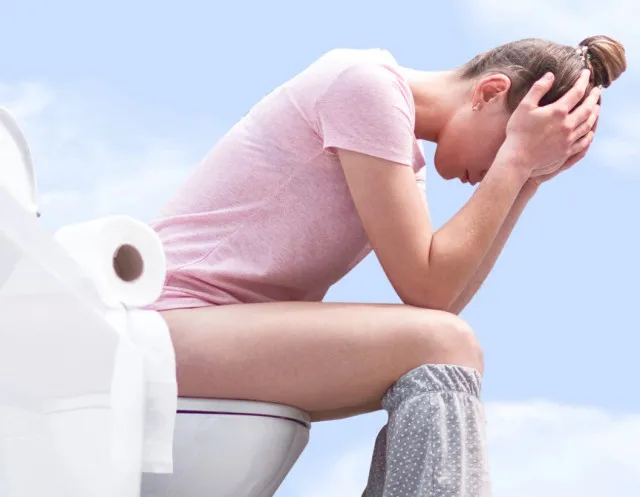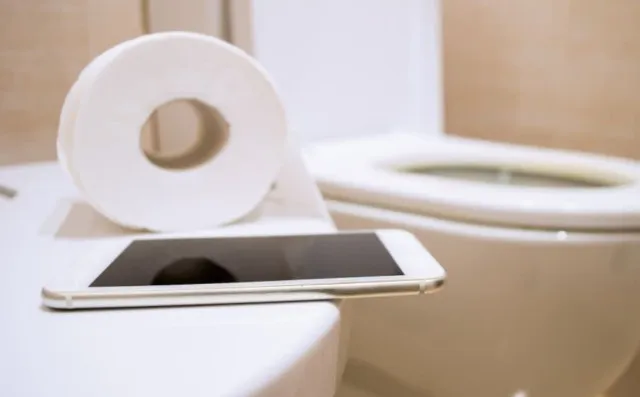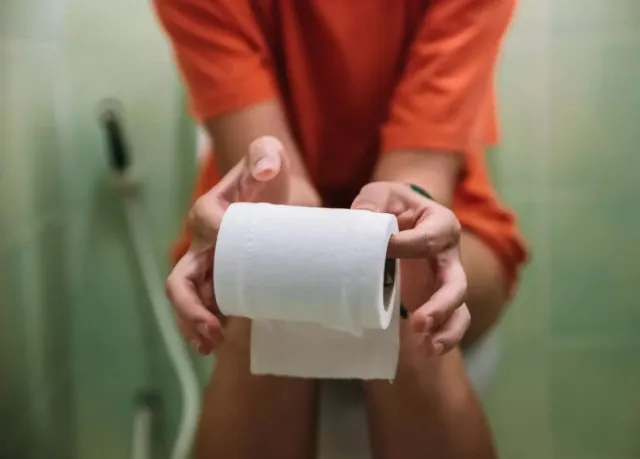In today’s fast-paced world, many people view bathroom breaks as an opportunity to relax, scroll through their phones, or catch up on reading. While it might seem harmless, spending too much time sitting on the toilet can have serious health consequences. Bowel surgeons and health experts warn that prolonged toilet sitting can lead to conditions like hemorrhoids and may even be linked to a rise in colon cancer among young people. Let’s delve into why you should limit your time on the toilet and how to maintain healthy bathroom habits.
The Hidden Dangers of Prolonged Toilet Sitting
Spending more than ten minutes on the toilet might seem like a minor indulgence, but the impact on your body can be significant.

1. Increased Pressure Around the Anus
When you sit on a toilet, your posture creates downward pressure on the rectum and anus. Dr. Lai Xue, a colorectal surgeon from the University of Texas Southwestern Medical Center, explains that this position can increase blood flow to the area while making it harder for blood to flow back. This phenomenon, known as the “one-way valve effect,” can lead to swollen veins or hemorrhoids—a painful and uncomfortable condition.
2. Strain on the Pelvic Floor Muscles
Prolonged sitting often coincides with straining during bowel movements. Straining weakens the pelvic floor muscles, which are essential for bowel and bladder control. Over time, this can result in rectal prolapse, where the rectum protrudes through the anus, requiring medical intervention.
3. Possible Indication of Bowel Movement Issues
Taking a long time to pass stool might signal constipation or other digestive problems. Constipation can lead to hardened stool, making bowel movements more difficult and further increasing strain on the rectum.
Colon Cancer: A Rising Concern Among Young People
Alarmingly, colon cancer cases among individuals under 50 have seen a dramatic increase in recent years. Health experts like oncologist Dr. Shivan Sivakumar from the University of Birmingham have described this trend as an “epidemic.”
The Connection Between Prolonged Toilet Sitting and Colon Cancer
While sitting on the toilet itself doesn’t directly cause colon cancer, it can be a warning sign of underlying issues. For example, symptoms such as persistent constipation, blood in the stool, or changes in bowel habits should not be ignored. These symptoms might indicate larger growths or blockages in the colon, which require prompt medical evaluation.
Why Young Adults Are at Risk
Colon cancer was once considered a disease affecting older adults, but younger people are increasingly being diagnosed with this condition. Factors contributing to this trend may include:
- Unhealthy diets: Diets low in fiber and high in processed foods can disrupt digestion and lead to constipation.
- Rising obesity rates: Excess weight is linked to an increased risk of colorectal cancer.
- Unexplained causes: Even young individuals with healthy lifestyles are being diagnosed, underscoring the importance of awareness and early detection.
Dr. Lance Uradomo, a gastroenterologist, notes that more young patients are experiencing issues like hemorrhoids and constipation, which can sometimes mask the early symptoms of colon cancer.

Signs You Shouldn’t Ignore
It’s important to recognize the symptoms that could indicate serious health problems. Seek medical attention if you experience:
- Blood in your stool.
- Changes in bowel habits, such as frequent constipation or diarrhea.
- Unexplained weight loss.
- Persistent abdominal discomfort.
Early detection can significantly improve outcomes, so don’t hesitate to consult a healthcare professional if you notice these signs.
Tips for Healthy Bathroom Habits
Adopting better bathroom habits can go a long way in preventing digestive issues and improving overall health.
1. Limit Your Time on the Toilet
Aim to spend no more than 10 minutes sitting on the toilet. If you’re taking longer, it might be a sign to assess your diet or consult a doctor about potential digestive issues.

2. Stay Physically Active
Regular physical activity helps maintain healthy digestion and reduces the risk of constipation. Even light exercise, like walking, can have a positive impact.
3. Eat a Fiber-Rich Diet
Incorporate plenty of fiber into your meals. Foods like fruits, vegetables, whole grains, and legumes promote regular bowel movements and reduce the risk of constipation.
4. Stay Hydrated
Drinking enough water supports healthy digestion and prevents stools from becoming hard and difficult to pass.
5. Listen to Your Body
Don’t ignore changes in your bowel habits or persistent discomfort. Promptly addressing these symptoms can help prevent more serious conditions.

Awareness Is Key
Many people underestimate the importance of bathroom habits in overall health. While prolonged toilet sitting might seem harmless, it can signal underlying issues or lead to complications like hemorrhoids, pelvic muscle strain, or even rectal prolapse.
Moreover, the rise in colon cancer among young adults is a stark reminder that serious health issues don’t always wait until later in life. Increased awareness, healthy habits, and regular check-ups are vital in protecting your digestive health.
Conclusion: Small Changes, Big Benefits
The next time you find yourself scrolling endlessly on your phone while on the toilet, remember this advice: limit your sitting time to ten minutes or less. It’s a simple adjustment, but it can prevent discomfort, improve your bowel health, and even alert you to potential health risks early.
Take care of your body—it’s the only one you’ve got. By making small, mindful changes to your daily habits, you can protect your digestive health and enjoy a more comfortable, worry-free life. Stay proactive, stay informed, and always listen to your body’s signals.


